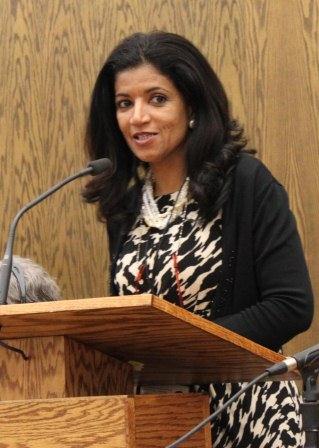Cape Verde and Brazil

Gaylee Coverston, Research Advisor
The session on Cape Verde and Brazil began with a presentation from Ligia Dias Fonseca, the First Lady of Cape Verde. She presented a general overview of Cape Verde, a republic consisting of ten islands with a relatively young population. She spoke on the consitution of the republic partularly clarifying article 48, Freedom of Conscience, Religion and Creed. Ms. Fonseca covered the legal requirements for registration of a religion and gave a statistical view of current religions in the country. She emphasized the need for interaction and respect. She also explained that even though Cape Verde is a civil state and the laws and statutes on religious freedom are clear and specific, a form of civil religion is expressed through certain civil ceremonies that are presided over by catholic representatives. She feels this is an expression of tradition rather than a specific religious expression and she expects this to fade in time as more religions gain space within the culture. Ms. Fonseca concluded with a beautiful slide show revealing the natural resources and beauties as well as some of the social and economic difficulties of the country.
As the session turned to the delegates from Brazil, Aldir G. Soriano, Professor of Law at the Universidade do Oeste Paulista and author of various articles and books, spoke on the foundations of religious freedom in the western Hemisphere. He quoted specific amendments from the United States Consitution explaining how the example of this constitution has acted as a framework for other countries as they have moved to a more democratic form of government. He continued to expound on the fact that the antiquated form of a state declaired religion satisfied no one. Religious freedom was necessary to a person’s identy. He also addressed the question of why the state should protect the right to religious freedom. He concluded with a call to discuss clearly and sucinctly the ideas of autonomy of individual conscience and autonomy of the colective conscience.
Gilberto Viana Antonio Garcia, Professor of Law, Retailer’s Trade Union of São Joao de Mereti in Rio de Janeiro and author of over 200 articles and book on the subject of religion and the law, gave a brief history of Brazil’s struggle for religious freedom and a civil state. Brazil began as a catholic state, however, over time it has established a country where religious freedom and separation of religion and state are clearly outlined. He sited a case currently in court regarding religious symbols in government buildings and mentioned issues with legislation for civil rights that stands in opposition to a religious organization’s right to worship how they may. This case involves sound ordinances in a neighborhood and the noise involved in a worship service by a religion in that neighborhood. He imposed the question that although the lay state allows for religious freedom, up to what point is that freedom appropriate when it interferes or impedes individual freedom of another. The line becomes very difficult to determine. However, he emphatically questioned, “do we allow children to be maimed in the name of religious freedom or other similar atrocities to happen?” Professor Garcia indicated that the current heated debate in Brazil is precisely this question. How do we determine the line that allows free practice of religion, respecting the rights of those worshiping, while still respecting and without infringing on the rights of others?